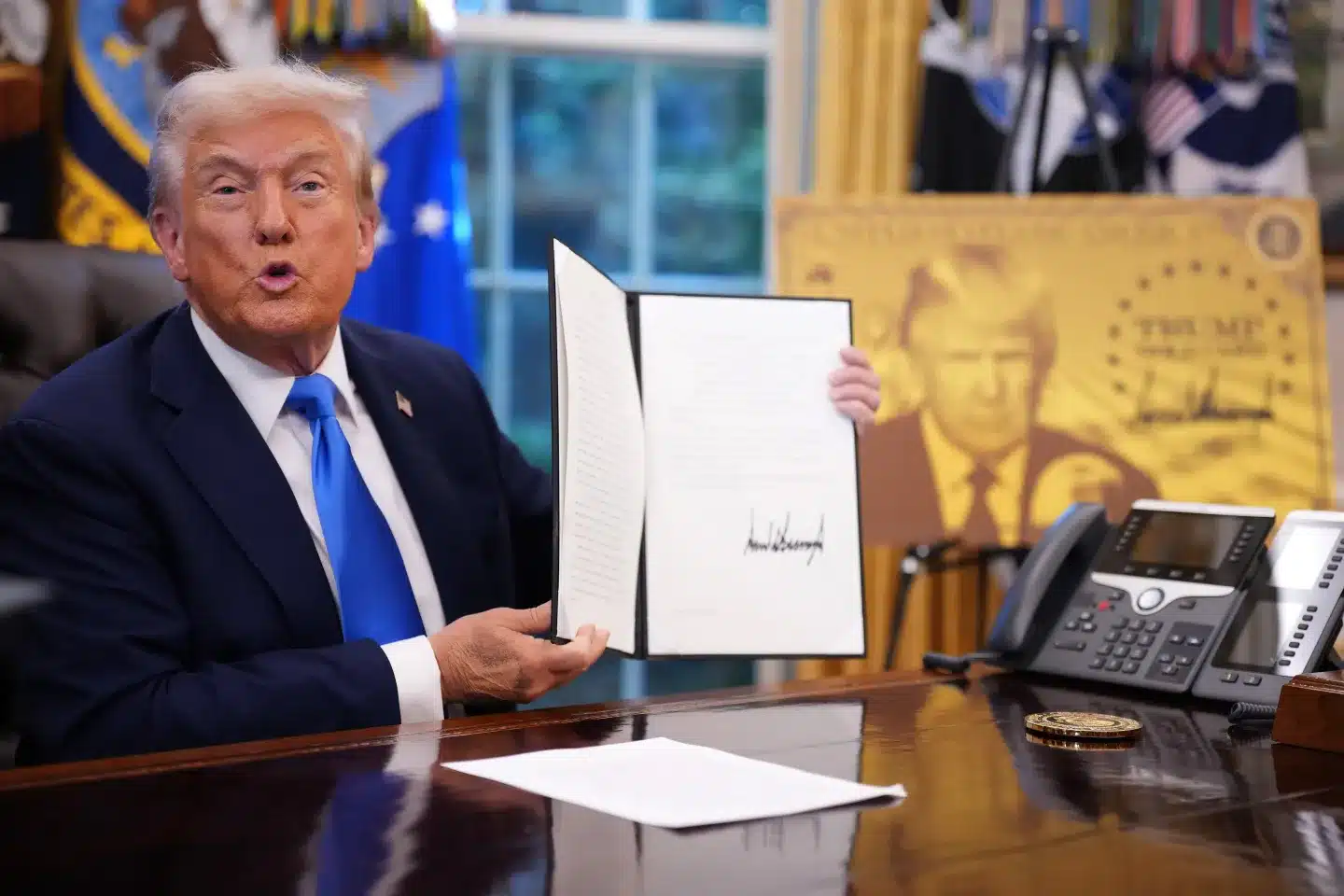Startup Founders Warn Trump’s $100K H-1B Fee is a ‘Talent Tariff’ Threatening Innovation

Amr Awadallah, the founder of AI startup Vectara, expressed both surprise and dismay upon learning about the recent changes to the H-1B visa program, which have dramatically increased the application fee to $100,000. Awadallah, who has hired one employee on an H-1B visa, believes that this steep fee will deter many startups from hiring international talent. The H-1B visa, designed to attract skilled workers in fields like IT and engineering, is now facing significant challenges that could impact innovation and competitiveness in the tech industry.
Impact of the Fee Increase on Startups
The recent announcement by the Trump administration to raise the H-1B visa application fee from $2,000-$5,000 to $100,000 has raised concerns among startup founders. Awadallah highlighted that while established tech giants may absorb the costs, smaller companies will struggle to afford such fees. This change is particularly concerning as it could limit the ability of startups to hire skilled workers from abroad, ultimately stifling innovation. The H-1B visa has historically been a pathway for many successful entrepreneurs, including leaders of major tech companies like Google and Microsoft. Critics argue that the fee hike could create a significant barrier for startups, which often rely on international talent to fill skill gaps in the U.S. job market.
The H-1B visa program allows for only 85,000 new applicants each year, with demand far exceeding supply. The lottery system used to allocate these visas adds another layer of uncertainty for companies seeking to hire international talent. With the new fee structure, the cost of hiring H-1B workers in the tech industry could skyrocket to an estimated $5.5 billion annually, raising questions about the future of tech innovation in the U.S.
Concerns Over Talent Shortages
Many founders in Silicon Valley are voicing their concerns about the talent shortage in the U.S., particularly in specialized fields like AI engineering. Brian Sathianathan, co-founder and CTO of AI company Iterate, shared his experience of relying on H-1B visa holders for key positions in his previous startup. He emphasized that the new fee structure could prevent future startups from accessing the talent they need to succeed. Hemant Mohapatra, a partner at Lightspeed Venture Partners, echoed these sentiments, warning that high visa costs could create an innovation gap in the U.S. startup ecosystem.
The emotional toll of these changes is palpable among founders who have personal connections to the H-1B visa program. Jeffrey Wang, co-founder of AI company Exa.ai, reflected on how the new fees could prevent future generations from experiencing the opportunities that his parents had as H-1B visa holders. The sentiment among many in the tech community is that the U.S. has historically benefited from the contributions of immigrants, and these changes could hinder the nation’s ability to attract top talent.
Exploring Alternative Visa Options
In light of the new fee structure, U.S. startups are actively exploring alternative visa options. Some founders are seeking exceptions for startups, while others are considering the O-1 visa, which is designed for individuals with extraordinary abilities. However, this visa does not allow spouses to work, which poses additional challenges for families. Companies are also looking into the EB-1A visa, which permits spouses to work but is typically reserved for individuals at the top of their fields.
Jack Thorogood, CEO of payroll company Native Teams, reported a significant increase in U.S. companies exploring visa-free global hiring options. He noted that one H-1B hire could now equate to hiring up to 20 remote workers in other countries, making it a more attractive option for startups. As barriers to hiring international talent in the U.S. rise, countries like Canada, Germany, and the U.K. are positioning themselves as viable alternatives for tech companies seeking to tap into global talent pools.
The Future of Tech Talent in the U.S.
The implications of the H-1B visa fee increase extend beyond immediate hiring challenges. Industry leaders are concerned that the U.S. may lose its competitive edge in the global tech landscape. Daniel Wigdor, an AI founder and professor, criticized the fee hike as a misguided approach that could undermine America’s position as a leader in technology. He argued that instead of competing for the best talent, the U.S. is testing the limits of how much companies are willing to pay to bring skilled workers into the country.
As the tech industry grapples with these changes, the future of innovation in the U.S. remains uncertain. The increased costs associated with hiring international talent could lead to a shift in how startups operate, with many opting to outsource talent or hire remotely. The ongoing debate surrounding the H-1B visa program highlights the critical need for a balanced approach that fosters both national interests and the growth of the tech sector.
Observer Voice is the one stop site for National, International news, Sports, Editor’s Choice, Art/culture contents, Quotes and much more. We also cover historical contents. Historical contents includes World History, Indian History, and what happened today. The website also covers Entertainment across the India and World.
Follow Us on Twitter, Instagram, Facebook, & LinkedIn

